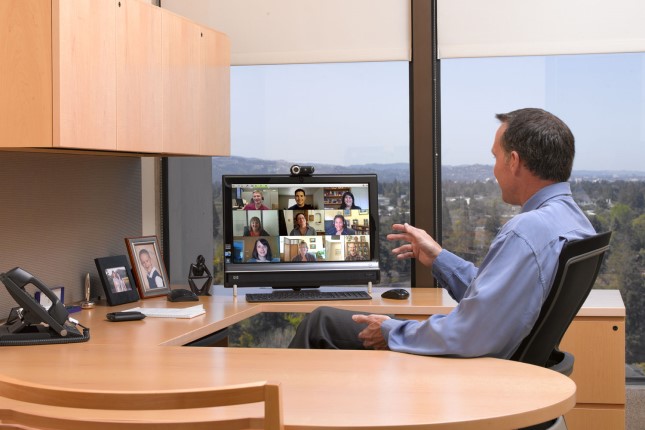The pandemic forced hundreds of millions of employees to work remotely. Once available to freelancers and IT specialists only, this working format appealed to many people.
A survey conducted by Stanford University found a 13% increase in productivity among those working remotely and, conversely, a 50% drop in the number of those who would like to quit voluntarily.
There are several reasons for this. Some find the opportunity to avoid unnecessary interaction with colleagues and bosses as a significant advantage. For 55% of respondents, it is easier to concentrate on work at home. 64% say that remote working allows them to save time on their daily commute.
Over half of employees consider commuting to work the worst and most stressful part of the day. At the same time, the average commute takes more time increasingly. Before the pandemic, about a quarter of all office workers in the US and South Korea spent more than an hour and a half on the road each day. Studies show that couples, where one of the partners lives more than an hour away from work have a 40% higher risk of separating.
Conversely, working from home gives employees more personal time and improves their quality of life. On top of that, it makes hiring more inclusive, opening opportunities for employees with certain health conditions or impairments and social phobias.
Prior to the pandemic, most executives did not allow employees to work outside their offices. Managers were putting up with staff chatting, coffee and long pointless in-person meetings, which could have been easily done online and more effective. With remote working, the average duration of meetings decreased by 20%. Meanwhile, many managers were worried that this format would cause them a loss of grip and control. It is particularly crucial for micromanagers, people who genuinely tend to lack trust in their team members.

Curiously, while more than half of the employees warmly welcomed the opportunity to work from home, the other half showed less enthusiasm, if any at all. Probably some of them were extroverts who lacked communication, gossip, and a chance to show off and perform in public.
In addition, many employers think that employees who work from home are on call 24/7. This is the flip side of a home office − there is no time or place to rest. In the first pandemic months, many people confessed working from home that, they felt as if being at work non-stop. And only after a few months were they able to find a work-life balance in which personal life began to take up significantly more space.
According to a Harvard University study that examined the emails and meeting schedules of 3 million people in 16 megacities worldwide, the workday has increased by more than 8%, or 48 minutes, on a remote basis.
Employees received significantly more emails (and during non-working hours). They attended (albeit virtually) an average of 13% more meetings that hadn't required their participation before that. In other words, by letting employees go home and loosening physical control over their activity, companies began to demand more involvement from them, which caused a great deal of concern among staff.

A hybrid work schedule, a flexible work model that combines remote and in-office work, could be a solution. Surveys show that about 60% of employees prefer this format, while only 9% would like to work exclusively in the office. That is, the vast majority choose to build their schedule themselves. It would also be ideal for those managers who are not ready to abandon face-to-face interaction with their subordinates completely.
Even major IT corporations like Microsoft tend not always to trust positive remote-work productivity metrics. CEO Satya Nadella pointed out that the surge may be temporary, and work-from-home all the time leads to burnout and mental health issues.
Take-Two Interactive Software, one of the world's largest computer game developers, agreed, saying that gradually employees relax and productivity falls. In addition, face-to-face interaction is an essential part of creative professions, helping engender new ideas. Take-Two CEO Strauss Zelnick pointed out unquantifiable benefits derived from being in the exact physical location.
Probably, these objections will sooner or later be removed by the development of meta-verses, where people can communicate face-to-face, physically located anywhere. The largest IT corporations are developing it actively. In particular, Mark Zuckerberg, with his Meta, seems to be supportive of remote working.
The IT sector generally tends to be more flexible in its interactions with personnel. Working from Goa or Barbados has been a usual thing for some companies for at least a decade. But financial organisations like banks switched to the home office format cautiously and rushed to abandon it as soon as the pandemic was over. The reasons were not only more conservative forms of personnel management and interaction within the organisation but also security issues.

After all, remote working can rightly be called one of the most significant social changes of the century. Now returning to the pre-pandemic past seems quite unlikely. Of course, there are still employees who are geographically tied to their workplaces, such as factory workers or those in the service industry. For others, working from home is a good alternative.
Remote working has an undeniable environmental benefit – reduced greenhouse gas emissions. In the future, the urbanistic will also evolve accordingly, leaving less space for transport infrastructure and more − for life and leisure. The real estate market will inevitably change.
The takeover of the work-from-home format is a win-win for employers and employees. Employers receive happier employees with higher productivity rates at fewer costs. Employees get a chance to manage their time effectively and choose the most attractive locations to live and work.
On the bottom line, remote work has many benefits; to some of us, they are unbeatable.

































